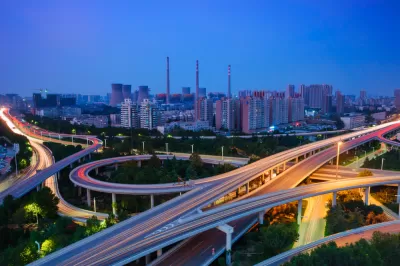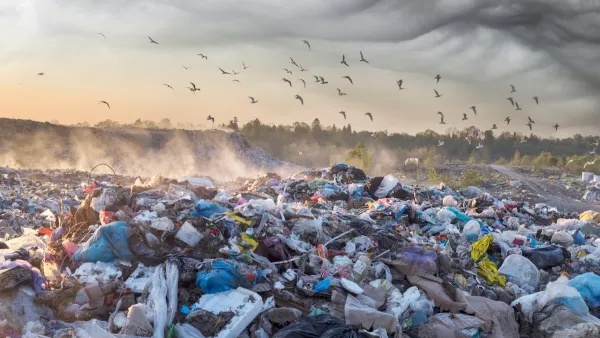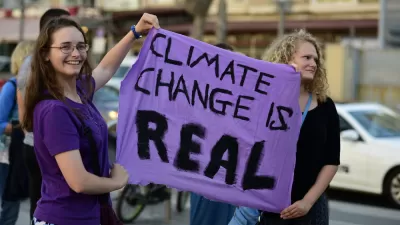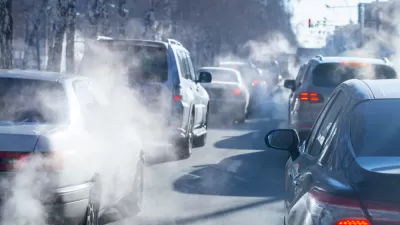What’s good for the planet is good for the economy, according to a recent study published by the Lincoln Institute of Land Policy.

Anthony Flint writes for the Lincoln Institute of Land Policy to explain the findings of a recent working paper, “Building the Breathable City.” The study, authored by Alexander Lord, Erwin van der Krabben, and Guanpeng Dong, documents the connection between air quality and land values in China.
“The kind of analysis done in Zhengzhou is important because it directly links environmental improvements to increasing value. Demonstrating that link is crucial in making the case for a financial tool that could be essential for addressing the climate crisis: land value capture," writes Flint.
The article provides more detail about land value capture as an emerging tool for municipalities and countries to generate revenue for the adaptation and mitigation investments that will be required of climate change. There is a growing list of projects that have successfully delivered economic benefit by investing in climate resilience and environmental sustainability, as documented by Flint, including projects in Quito, Seattle, Philadelphia, Buenos Aires, Tokyo, and Boston.
Still, the emerging evidence in support of an environmental approach to economic development has a long way to go to become the status quo. According to Flint, “many barriers must be overcome to make land value capture work. National urban development laws need to be reformed to authorize more local governments to mobilize land value increments and permit own-source revenue. Around the world, a pressing need remains to improve institutional capacity, good governance, land controls, and tenure systems.”
The Lincoln Institute of Land Policy has also created a Land-Based Climate Finance page that explains how municipalities can leverage capital stock is embedded in land, buildings, and infrastructure to generate revenue streams for climate adaptation, mitigation, and resilience.
FULL STORY: Return on Investment: Research Links Climate Action with Land and Property Value Increases

Planetizen Federal Action Tracker
A weekly monitor of how Trump’s orders and actions are impacting planners and planning in America.

Congressman Proposes Bill to Rename DC Metro “Trump Train”
The Make Autorail Great Again Act would withhold federal funding to the system until the Washington Metropolitan Area Transit Authority (WMATA), rebrands as the Washington Metropolitan Authority for Greater Access (WMAGA).

DARTSpace Platform Streamlines Dallas TOD Application Process
The Dallas transit agency hopes a shorter permitting timeline will boost transit-oriented development around rail stations.

Tesla Protests Release of Documents About Austin Robotaxi Launch
The company seeks to block the release of emails with city officials on the grounds they could contain confidential information and trade secrets.

Fungi to the Rescue: How Mushrooms Are Helping Clean Up Toxic Lands
Fungi are emerging as powerful tools in environmental cleanup, with scientists and community leaders using mushrooms to break down pollutants and restore contaminated soil.

DC, Columbus Bike Share Fleets Introduce Cargo Bikes
Shared mobility is ‘growing up,’ with rental options increasingly expanding to include e-bikes, scooters, and cargo bikes.
Urban Design for Planners 1: Software Tools
This six-course series explores essential urban design concepts using open source software and equips planners with the tools they need to participate fully in the urban design process.
Planning for Universal Design
Learn the tools for implementing Universal Design in planning regulations.
City of Charlotte
Municipality of Princeton
Roanoke Valley-Alleghany Regional Commission
City of Camden Redevelopment Agency
City of Astoria
Transportation Research & Education Center (TREC) at Portland State University
US High Speed Rail Association
City of Camden Redevelopment Agency
Municipality of Princeton (NJ)





























